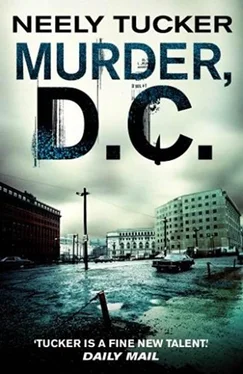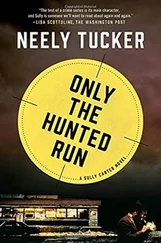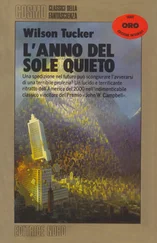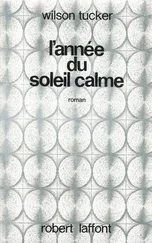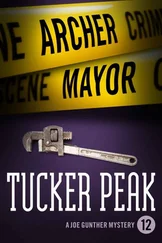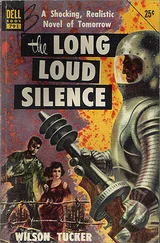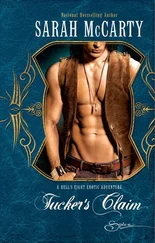“Daddy dearest,” he said.
In the middle of the floor by the couch, he’d placed the records of Delores’s parents, Lambert Ellison III and his wife, Ruth. They’d lived-and here a photograph was clipped to a weathered copy of a property deed-in a four-story Victorian off Logan Circle. It had also been, it turned out, the family home of Billy’s great-grandfather, Lambert Ellison II, just a few steps from the gray stone and brick Gothic marvel of the Mount Gilead Baptist Church.
The next stack, moving backward in time, was that of Lambert Ellison himself. Born in 1879, married at twenty, a banker and the son of the founder of the empire, Nathaniel Benjamin Ellison.
Nathaniel himself seemed to come up from nowhere to found the Washington Trust Bank. He had been a founding member of Washington’s black aristocracy-banker, financier, the heart of the community’s ambition. He loaned, he built, he planned, he set his family up for a century of wealth and prominence. A photo showed him: light skinned, high forehead, thick eyebrows.
That appeared to be as far back as Billy had gotten.
The rest seemed to be documents regarding slavery in the city. There was one, from a Works Progress Administration project, that Billy had marked up in yellow highlighter:
The District of Columbia, too small for slave rearing itself, served as a depot for the purchase of interstate traders, who combed Maryland and northern Virginia for slaves to buy and resell. Since the slave jails, colloquially known as “Georgia pens,” and described by an ex-slave as worse than hog holes, were inadequate for the great demand, the public jails were made use of, accommodations for the criminals having to wait for the more pressing and lucrative traffic in slaves.
There were pens in what is now Potomac Park. More notorious were McCandless’s Tavern in Georgetown; in Washington, Robey’s Tavern at Seventh and Maryland Avenue; and Williams’s “Yellow House” at Eighth and B street SW.
In Alexandria, the pretentious establishment of Armfield and Franklin, who by 1834 were sending more than a thousand slaves a year south to…
Scholarly articles from the Historical Society of Washington, D.C., the Library of Congress, the Smithsonian. A speech by one Joshua Giddings. The escape attempt by seventy-seven slaves aboard the Pearl , a schooner that made it all the way down the Potomac before being caught.
Finally, there was a cluster of papers about the Bend. Property records of Didier Delacroix, the man who owned the place. An 1830 census, listing the slaves held at the Bend:
One male under 10.
50 males 10-24
20 males 25-36
4 females under 10
50 females 10-24
20 females 25-36
“Working and breeding stock,” he said out loud to himself. “Christ.”
A traveler’s description of the place in 1846, showed the population to have grown north of three hundred, crammed into an acre, and acre and a half.
Frenchman’s Bend lies along the waterfront, a peculiar spit of land in the waters of the Potomac, well recognizable from quite a distance. The outer walls of the slave pen are brick in nature, rising at least ten feet. Outside this expanse are three buildings. Two are wooden, barnlike structures, dedicated to the keeping of foodstuffs and equipment particular to that trade. Leg chains, neck chains, manacles, well-oiled and kept, hang from long rows of wooden rails. The other building is a two-story frame house, white, set farther down, which the owner, Didier Delacroix, uses upon occasion, although his main residence is in the city proper.
The inside of the slave pen is largely open, a packed-dirt courtyard that is given over to mud and muck after rainfall. The door is well steeled and covered by a type of cantilevered awning, set higher above the wall and tilting back to it. It provides a type of shade or protection from the elements. The slaves themselves are kept in ramshackle structures, one-story in nature, divided by their gender, with long rows of slats for sleeping.
It is not an uncommon observation for those passing on the roadway or sailing on the waters to report hearing the strains of the lash and the cries of the afflicted.
Okay, good god, he thought, flipping through the papers, describing more of the land and the layout, his eyes glazing now. What ancestor was this about, Nathaniel’s mother or father? Who had been bought or sold or brought here?
He was looking for a name when he saw it, circled, at the bottom of one page of financial records-and it began to glow on the page, red as the ink in which it was circled, one single name, for that’s all the woman was listed as-Jeanne-Marie-and Billy’s notation, “Nathaniel’s mother.”
And then he got it. He put two or three of the census records together, documents about Jeanne-Marie over a thirty-year period, and it all blew open for him, as it must have for Billy, and then he was ransacking the rest of the files, the paper, scrambling to find the rest of her awful history, the suffering and the misery, and it took him a full minute before he realized the ringing he heard was not in his head but was from the phone, someone calling him over and over again.
THE CLOCK ONthe nightstand read 2:47. Coming up on the witching hour, closer to daybreak than sundown… and still it kept ringing. He got up, padded around the room, looking-where was the goddamn thing? Why did they make them so small? It was… it was under the turned-back comforter on the bed. He snatched it, scowling at the caller ID, his temples throbbing. The number, he knew it, Take a deep breath, calm down …
“Parker,” he said finally into the phone. “John, what the hell, man, I didn’t know you loved me this much, two in the morning.”
John’s voice, when it spoke back to him, was buried by static, by wind in the background, voices shouting, and there was a whoop whoop of a siren.
“Parker,” he said, louder. “Where you at? Speak up.”
There was a rustling and a clump and then the wind dropped out and Sully guessed he’d cupped a hand around the cell, tucked his chin down to his chest. “I said I’m back in the Bend, where you think?” he shouted.
“Why’s that, brother? It’s sort of late for-”
“Somebody just shot the Hall brothers.”
“-this sort of bull-the what ??”
“Both of ’em. Carlos, Tony. Dead as disco. Right down here at the waterline. Looking at ’em now. Hear that? That’s me kicking Tony’s foot. Or is it Carlos? Can’t tell ’em apart, facedown like this here. Why all the gangstas wear Timberlands?”
Sully slumped down on the bed, mouth half-open, running his free hand through his hair, pulling on it, this change of direction, trying to put together the angles, Sly, T-Money-
“What happened?” is what he got out. “What the fuck happened?”
“That’s what I wanted to ask you, brother. You write a story about the Bend maybe being the murder capital and now it sure as hell is . Dee Dee, Billy Ellison, Antoine, Billy’s momma , and now two heavyweights-I mean the guys running this place for six, seven years-all of ’em dead within what, fifty, sixty feet of each other.”
“I didn’t-”
“This some of your Louisiana voodoo?”
“It had started when I-”
“Yeah yeah yeah. Look, you coming to see these boys before we bag and tag ’em or what? I ain’t going to be out here all night.”
THE BODIES WERE,as promised, hard by the water, draped in plastic sheeting, illuminated by work lights the techs had set up. One right by the rocks, another a few feet over. The yellow tape was up at the street entrance to the park, at Fourth and P. There were no gawkers, the sidewalks and streets empty.
Читать дальше
